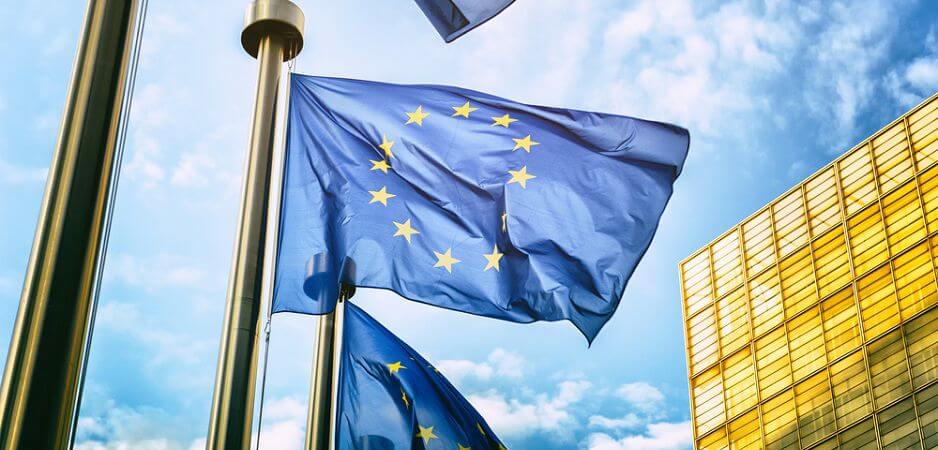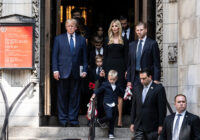With its new European Defense Fund, the EU is reaching an unprecedented milestone: funding the defense industry.
Until now, European defense has been advancing at a snail’s pace, but the latest moves may launch it a quantum leap forward. However, recent progress is not due to the grand political declarations of the last few months, but rather to the practical inception of the European Defense Fund (EDF). With this fund, the European Commission will support collaborative research, development and acquisition of defense capabilities and technologies.
The signs for closer cooperation are there. With Britain’s exit from the European Union, a traditional veto for further European cooperation will disappear. US President Trump is raising doubts about American security guarantees and is signaling to Europeans that they need to pull their own weight. Furthermore, EU member states cannot hide from the difficult security challenges within and around Europe. Finally, in Emmanuel Macron, the French have elected an avowed European as their president.
A novelty: EU funding for the defense industry
In late 2016, EU member states adopted an agenda on how to improve cooperation in the realm of security and defense at the EU level. The EDF is one of the numerous elements to take European defense to the next level. In comparison to the various political declarations and the many new institutions and tools, such as the Military Planning and Conduct Capability or the Permanent Structured Cooperation, the EDF has not received much attention. However, its creation is highly political because the European Commission is, for the first time, directly engaging in defense policy and with the defense industry. Until now, EU member states have preferred to deal with defense questions mostly amongst themselves.
The idea of the EDF is simple: The European Commission coordinates, complements and boosts investments in defense research, the development of prototypes, and the procurement of defense equipment and technology. This way, the commission helps member states and companies avoid excess expenditure and spend more efficiently.
Thereby, the European Commission is reacting to two problems.
First, no company and no state in Europe is financially capable of developing the next generation of drones, ships or other defense equipment alone. The costs for research and development are simply too high and will only increase in the future. Furthermore, Europeans spend comparatively little money on research, development and procurement: European states combined invest only about 20% of their total defense expenditure, while the United States alone spends about 30%. Without sufficient investments in defense research and development, companies’ innovation and eventually their global competitiveness suffer. But European states need a powerful and efficient industry to equip their security forces for the future.
Second, the fragmentation of the European defense market is an issue. Here, Europeans rarely cooperate. Usually, states spend their money nationally, instead of collectively and coordinated on a European level. Seventeen different types of battle tanks exist in the EU, while the US only has one. The European defense market is fragmented, characterized by duplications and protectionism.
The EDF tries to fight this, firstly by offering financial assistance to companies that cooperate in research and development across borders. Only if companies from different countries work together would they receive support. Secondly, the EDF supports groups of states that aim to jointly procure defense equipment.
Funding is provided in two areas (or “windows” in European Commission terms): the research window and the capability window. The support for research has already started and encompasses technologies such as robotics or encrypted software. Between 2017 and 2019, the commission will initially provide €90 million ($105 million) from the EU budget. This paves the way for a European defense (research) budget under the next EU Multiannual Financial Framework, for which €500 million has been designated starting in 2020.
 Within the capability window, the commission intends to provide €500 million between 2019 and 2020 for development and acquisition. The European Commission is finalizing a program to provide €1 billion annually as of 2020. Conceivable projects include the joint investment in drone technology or the bulk procurement of helicopters. According to the plan, the EDF will incentivize these projects by carrying 20% of their costs (up to 30% if the project takes place within Permanent Structured Cooperation).
Within the capability window, the commission intends to provide €500 million between 2019 and 2020 for development and acquisition. The European Commission is finalizing a program to provide €1 billion annually as of 2020. Conceivable projects include the joint investment in drone technology or the bulk procurement of helicopters. According to the plan, the EDF will incentivize these projects by carrying 20% of their costs (up to 30% if the project takes place within Permanent Structured Cooperation).
A step in the right direction, but many unsolved problems
The interest in the EDF is there, especially since Europeans are increasingly realizing the lack of competitiveness of their industries and the problem it creates. However, it is still up for debate whether the EDF is really offering enough money to sufficiently incentivize cooperation. It remains to be seen if a 20% incentive is enough to make the projects profitable. Additionally, it is far from guaranteed whether the commission can reach its aim and supply an annual total sum of €5.5 billion from 2020. This is an ambitious goal, especially in view of Brexit, which will lead to the loss of a major contributor to the EU budget.
Furthermore, the exact funding details for the post-2020 period remain unclear. Europeans also need to make sure that they only procure the equipment they really need. For this reason, states need to respect the planning priorities as defined in the Capability Development Plan. And finally, some smaller EU member states are worried that only big companies will profit from the support of the EDF, whereas their companies might not survive.
Despite these problems, the EDF is a step in the right direction. For the first time, the EU is incorporating the defense industry in its efforts to shape European defense. Now the funding must be ensured. In addition, the design of the fund should stay flexible so that initial experiences with EDF-funded projects can be integrated into the further constructive development of the fund. If this can be achieved, then the chances are higher for a competitive European defense industry.
While there is still vociferous debate about strategic autonomy and a European security and defense union, there is now tangible action on an industrial level. Here, things might be moving quietly but effectively.
*[This article was originally published by the German Institute for International and Security Affairs (SWP), a partner institution of Fair Observer.]
The views expressed in this article are the author’s own and do not necessarily reflect Fair Observer’s editorial policy.
Photo Credit: symbiot / Shutterstock.com
Support Fair Observer
We rely on your support for our independence, diversity and quality.
For more than 10 years, Fair Observer has been free, fair and independent. No billionaire owns us, no advertisers control us. We are a reader-supported nonprofit. Unlike many other publications, we keep our content free for readers regardless of where they live or whether they can afford to pay. We have no paywalls and no ads.
In the post-truth era of fake news, echo chambers and filter bubbles, we publish a plurality of perspectives from around the world. Anyone can publish with us, but everyone goes through a rigorous editorial process. So, you get fact-checked, well-reasoned content instead of noise.
We publish 2,500+ voices from 90+ countries. We also conduct education and training programs
on subjects ranging from digital media and journalism to writing and critical thinking. This
doesn’t come cheap. Servers, editors, trainers and web developers cost
money.
Please consider supporting us on a regular basis as a recurring donor or a
sustaining member.
Will you support FO’s journalism?
We rely on your support for our independence, diversity and quality.






